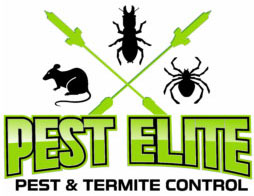
- Rodent nesting habits
Rodents thrive across the world in almost any habitat with access to food and water. Because of their small size, they can be difficult to keep out homes & commercial premises. Rats can get indoors through holes the size of a coin, while mice can use gaps half the size of a coin to gain access.
- Should I be concerned about Rodents?
In addition to being tough to control, rodents may carry diseases and spoil food with waste, fur, and saliva. In fact, mice can contaminate about 10 times the amount of food they eat.
Rodents are also hosts for fleas, which can spread plague and diseases like lymphocytic choriomeningitis virus. This illness mostly affects those with weakened immune systems and may result in headaches, fever, and meningitis. It can also cause complications during pregnancy.
If you locate a rodent within your home, it is best to contact a pest management professional for removal and identification. The presence of one rodent within a home could signal an infestation.
Keep all children and pets away from the rodent. If cornered, the rodent will bite to defend itself.
It is not advisable to handle any wild rodent. They are equipped with large teeth and are capable of transmitting a variety of bacteria, viruses and diseases through their saliva, feces and urine.
- Rodent infestation
Rodents are some of the most adaptable creatures on the planet and can be extremely difficult to eradicate. Infestations can cause considerable damage to infested buildings and local agriculture as well as the proliferation of many diseases hazardous to humans.
Rats and mice are both extremely destructive within agricultural communities. A number of species feed on seeds and grains. The feces and urine of some rodents may contaminate surfaces with which they come into contact.
Unified efforts on the part of neighbors can prove extremely effective in preventing infestations. Within apartment buildings and neighborhoods, coordination of prevention measures may include cleaning efforts and landscape alteration. And on an individual level, homes can be rodent-proofed through identifying and sealing as many possible entry points.
In order to protect your home, garden and health from existing rodent infestations however, professional, customized solutions are often necessary.
- Rodents lifecycle
Rodents tend to be rapid breeders. Some species breed year-round, and populations are maintained through constant reproduction. Females produce pheromones that attract the attention of males. After sensing the female’s hormones, the male mouse emits an ultrasonic mating call.
A female mouse produces between five and eight offspring after mating. Although females are protective of their young, some also consume their offspring if exposed to high stress such as famine.
Mice young are blind, deaf and hairless for the first three days following birth. For mice with dark adult coloration, pigmentation of the skin begins on the third day. Within five to seven days, fur begins to grow and the ears become receptive. Eyes open between days 10 and 14, at which point young mice become mobile and begin to feed on solid foods.
In 21 to 28 days, babies wean from their mother’s milk. They reach maturity between days 28 and 35 and are then capable of reproduction. Some specimens are capable of breeding at six weeks. Mice tend to live for approximately one year.

